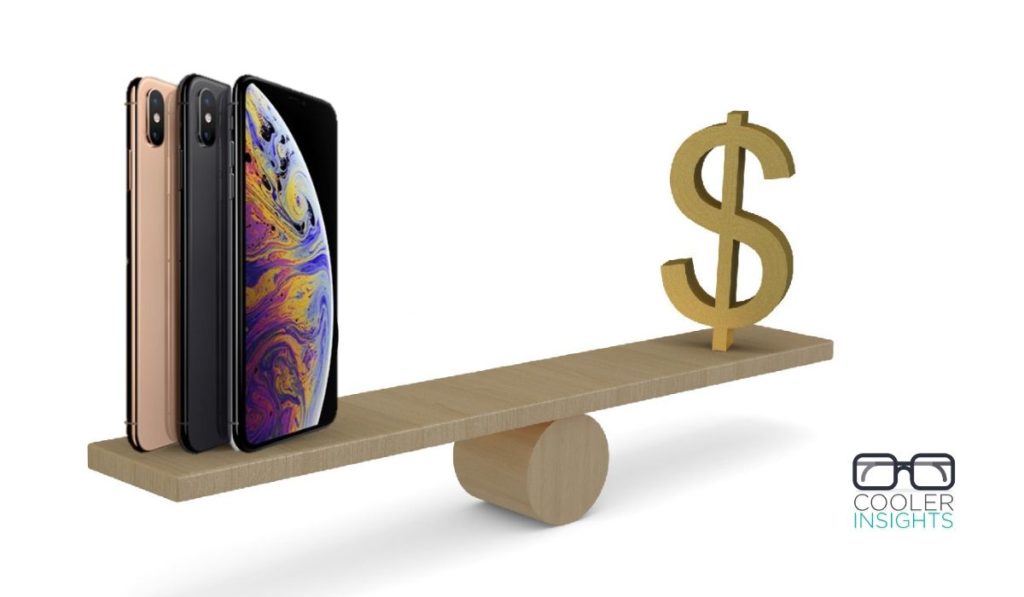
Original design from AsiaPacFinance.com
Are you going crazy over Apple’s latest iPhone Xs, iPhone Xs Max, and other new models?
Well, many people are – for both good and bad reasons. While the stratospheric prices of the new phones (as much as $2,000 without contract) got some people’s undies in a knot, others have felt that it was a good bargain.
The question many of you would ask yourself (myself included since I’m an iPhone fan) is this:
“Should I buy the latest iPhone Xs or invest the money elsewhere?”
This reminds me of one of the great life lessons I’ve learned from a former boss: the principle of Hedonic Arbitrage.
Hedonic what? Well, let us begin with some definitions.
Defining Hedonic Arbitrage
According to the Free Dictionary, hedonism in the psychological sense is the “doctrine holding that behaviour is motivated by the desire for pleasure and the avoidance of pain”.
On the other hand, arbitrage is defined as a financial term meaning:
“the purchase of currencies, securities, or commodities in one market for immediate resale in others in order to profit from unequal prices”.
Taken together in a liberal sense, hedonic arbitrage could be understood as the principle of shifting investments in any form (money, goods, assets, time or effort) from one pool to another pool for the purpose of maximising happiness (or minimising pain).
In other words, it is a philosophy of weighing the gains out of any transaction vis-a-vis its costs relative to other possibilities.
The Problem with Splurging
To illustrate this, let us assume that you intend to spend a fixed sum a year on “fleshly” pleasures. This could be anything from holidays to gifts to tech toys to clothes.
If you’re like most people, you’ll probably go with your gut. This means that we’ll be susceptible to the lures and traps of marketers devising various schemes to tempt us away from our money.
As behavioural economists and psychologists tell us, these decisions are often irrational, ill-wrought and counter-productive.
Honestly, how many times have we regretted spending money on that epic holiday, state-of-the-art digital device, or that luxurious bag when we return home?
Determining ROI of Happiness
To avoid this, we could perhaps consider such decisions as “investments” and weigh more carefully the ROI in terms of happiness received (or Return On Happiness). Reflect upon the following:
1) What has our previous experience with this activity or purchase been like? Were we truly happy then or did we change our mind after the deed was done?
2) Consider other options beyond “going for the kill”. Think expansively beyond the immediate category. For instance, do we really need to lavish ourselves with a $200 meal or would that money be better spent on an air ticket to Bangkok?
3) Take stock of your “inventory” of pleasures and determine where the gaps are. Have you gone on too many holidays and failed to update your tired-looking wardrobe? Conversely, are you rich in material goods and poor on novel experiences?
4) Don’t forget the adage that “time is money”. Any form of investment costs us both time and money. Consider if spending those few hours at the mall is going to make you more fulfilled compared to reading a good book or catching up with friends over a meal.
5) Adopt the mindfulness of a Zen master and reflect on your own life values and philosophy. No, I’m not asking you to live the life of an ascetic. Rather, think about whether a particular activity is aligned to your long-term beliefs and values.
Porfolio of Purpose and Pleasure
Being human, it will of course be challenging trying to curb all impulse buys. I’m not saying that every activity has to be premeditated. After all, we are emotional beings and not robots.
What I’m proposing, however, is that we take on the guise of an investment manager and view our “investments” as a “portfolio” of pleasure and purpose.
With limited resources and time on our hands, it may sometimes pay dividends for us to consider one decision over another, weigh the long-term pros and cons, and reflect upon our past successes or mistakes.
Doing so may help us achieve that holy grail of meaning, fulfillment and happiness without always needing to garner more money, friends, or assets.
Do you agree with the principle of hedonic arbitrage? How could you apply it in your life? And more importantly, will you still buy that irresistible new iPhone Xs or iPhone Xs Max?
